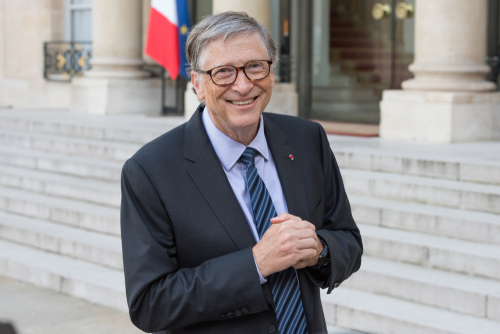Bill Gates just dropped a major prediction that could upend how Americans think about work. The tech billionaire says Artificial Intelligence is advancing so fast that we may only need to work two or three days a week—and that shift could happen within the next decade.
AI Revolution May Slash Work Hours
Speaking about the rise of Artificial General Intelligence (AGI), Gates claimed that as AI becomes capable of handling complex human tasks, entire industries—from logistics to education—will be transformed. “At the current pace of innovation in AI, humans may no longer be needed for most things,” Gates warned.
Rather than fear job loss, Gates asked a deeper question: “What will jobs be like? Should we just work like 2 or 3 days a week?” His vision flips the traditional American work ethic on its head, suggesting that instead of fearing AI, we might embrace a future with more free time and less burnout.
Bill Gates says AI will replace doctors, teachers within 10 years — and claims humans won’t be needed ‘for most things’ https://t.co/H9hLIjHVf6 pic.twitter.com/74fO07G9vP
— New York Post (@nypost) March 27, 2025
Global Business Leaders Clash on Work Philosophy
Gates’ futuristic forecast clashes with voices in other parts of the world pushing for more work—not less. Indian tech mogul Narayana Murthy recently told young workers they should log 70-hour weeks to boost national productivity. Another executive, SN Subrahmanyan, even expressed regret that his employees don’t work Sundays.
In contrast, Gates joins a handful of Western CEOs like JPMorgan’s Jamie Dimon, who see AI as a tool to reduce workloads and reshape labor expectations. “The purpose of life is not just to do jobs,” Gates emphasized.
Bill Gates wants to create AI that bans "harmful speech"
"For example, causing people to skip a vaccine" pic.twitter.com/HIYx4sdx8R— illuminatibot (@iluminatibot) March 12, 2025
A New Economy or Just New Problems?
While the idea of a shorter workweek sounds appealing, it brings big questions. What happens to displaced workers? Who controls the AI economy? Gates admitted that AGI will bring “so much change” that society must prepare now.
Some countries are already experimenting. Japan is testing four-day workweeks to ease birthrate declines and reduce overwork. These pilot programs could give Americans a glimpse into a possible future where productivity doesn’t depend on endless hours.
Ultimately, Gates believes humans will choose what to preserve. “We’ll decide, like baseball—we won’t want to watch computers play baseball,” he said, hinting at a future where some parts of life remain fully human.
Will AI free Americans—or just replace them? That’s the question Bill Gates is daring the world to answer.

